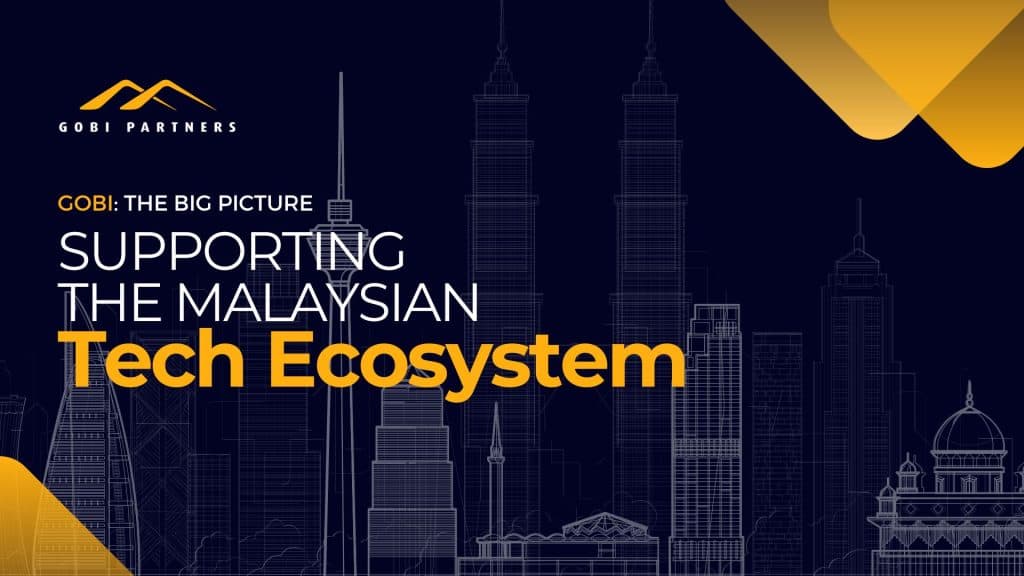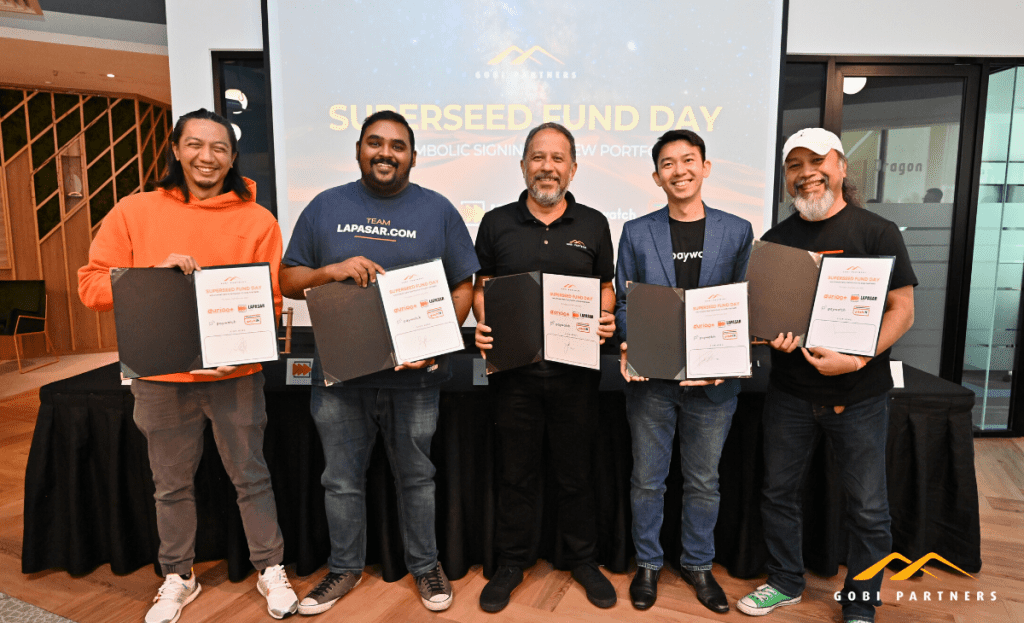
Here at Gobi Partners, it is our goal to support entrepreneurs from the early to growth stages, especially those in emerging and underserved markets.
Malaysia was certainly one of those markets back when Gobi first joined the venture capital (VC) scene in 2005. There were hardly any private sector venture players then, with the majority of investments channelled to the commercialisation of local research and universities, as well as system integration and basic automation services.
Today, the Malaysian startup ecosystem is much more vibrant. It has transformed into one that taps into underserved markets and needs, such as the Muslim market, leveraging the country’s strength as a leader in Islamic finance. To that end, Gobi’s focus on emerging and underserved markets remains as this philosophy ties back to our recent onboarding of four more portfolio companies to the Superseed II Fund (Gobi SSII Fund), which targets early-stage technology-enabled startups operating in emerging segments.
Since the fund’s launch in late 2020, we have invested in four Malaysian startups – Sunway Innovation Labs, TechNode Global, Speedhome and PolicyStreet – and this year, we onboarded four more promising local startups to the Gobi SSII Fund. These include Islamic-themed streaming service Durioo+, e-commerce marketplace Lapasar, earned wage access (EWA) provider Paywatch and online investing platform pitchIN. Added to the fact that all four companies address unmet needs, they have also been identified as leaders in their respective fields and have the capability to scale up and bring sizeable returns to the Malaysian economy.

As with other businesses, while they have successfully adjusted themselves to remain relevant to their markets and also thrived and strengthened their respective positions, they may still face a challenging year with economic headwinds in 2023. On the international front, the economic pressure from the ongoing geopolitical tensions in Eastern Europe is still causing a rise in global inflation with high commodity prices, while there is a moderation in China’s growth and tighter global monetary policy.
Malaysia’s economic growth prospects will be tempered against this backdrop, but Bank Negara Malaysia notes that the country’s gross domestic product (GDP) remains resilient and is forecasted to expand between 4% and 5% in 2023, driven by domestic demand. Moreover, the country is grappling with a sharp increase in climate disasters such as floods and landslides, as well as pressing food security and cost-of-living issues, with signs pointing to a possible recession.
Facing these headwinds could be tough for startups, especially when we take into account the valley of death in the early years of any company, which is where Gobi can come in to help guide them through it. Working with an advisory board and leveraging the expertise of your investors, for one, is a good way forward. So, too, is focusing on achievable ‘low-hanging fruits’ that help generate money to boost the bottom line and cash flow. Those are the bread-and-butter concerns for businesses, which is tough enough as it is, but in recent years, even startups have had to navigate the path towards sustainability by taking environmental, social and governance (ESG) principles into consideration.
At the same time, where there is a risk, there is also opportunity. Technologies that address these complex issues will drive the industry further into the future and while we are actively looking out for suitable companies in Malaysia and in the region now, we are also committed to helping our businesses grow sustainably with this in mind.
But how can companies go about adapting to climate change? First things first, a company must be aware that adaptation and mitigation go hand-in-hand and equal importance must be placed on the dual focus areas to achieve the end goal: Net-zero emissions.
What this means is that reducing greenhouse gas emissions to slow down climate-related risks, through mitigative efforts, is indispensable in ensuring a lower need – and a reasonable learning curve that is less costly and taxing on resources – for adaptation in future-proofing the business.
To adapt, companies must understand their exposure and vulnerability to impacts, in other words, the ESG risks that can reveal how climate events could potentially impact your business, and implement controls along your entire supply chain to manage these risks and lower their impact on your business.
This should be par for the course, given the harsh lessons learnt during the height of the Covid-19 pandemic, where even global supply chains were disrupted.
A second lesson is to leverage technology and digital solutions to enable more efficiency and productivity. Now is the time to translate the data you’ve collected into actionable information and data-driven decisions to fuel your company’s growth, tackle the need for increased governance owing to the ESG trend, or even develop crisis management controls to minimise future disruptions to business. It may even be time to consider leveraging your tech foundation to diversify your business and reduce your exposure to ESG risks.
The future lies in innovation and a better future for all hinges on respect and compliance to ESG. It’s time for everyone in the ecosystem to take accountability.